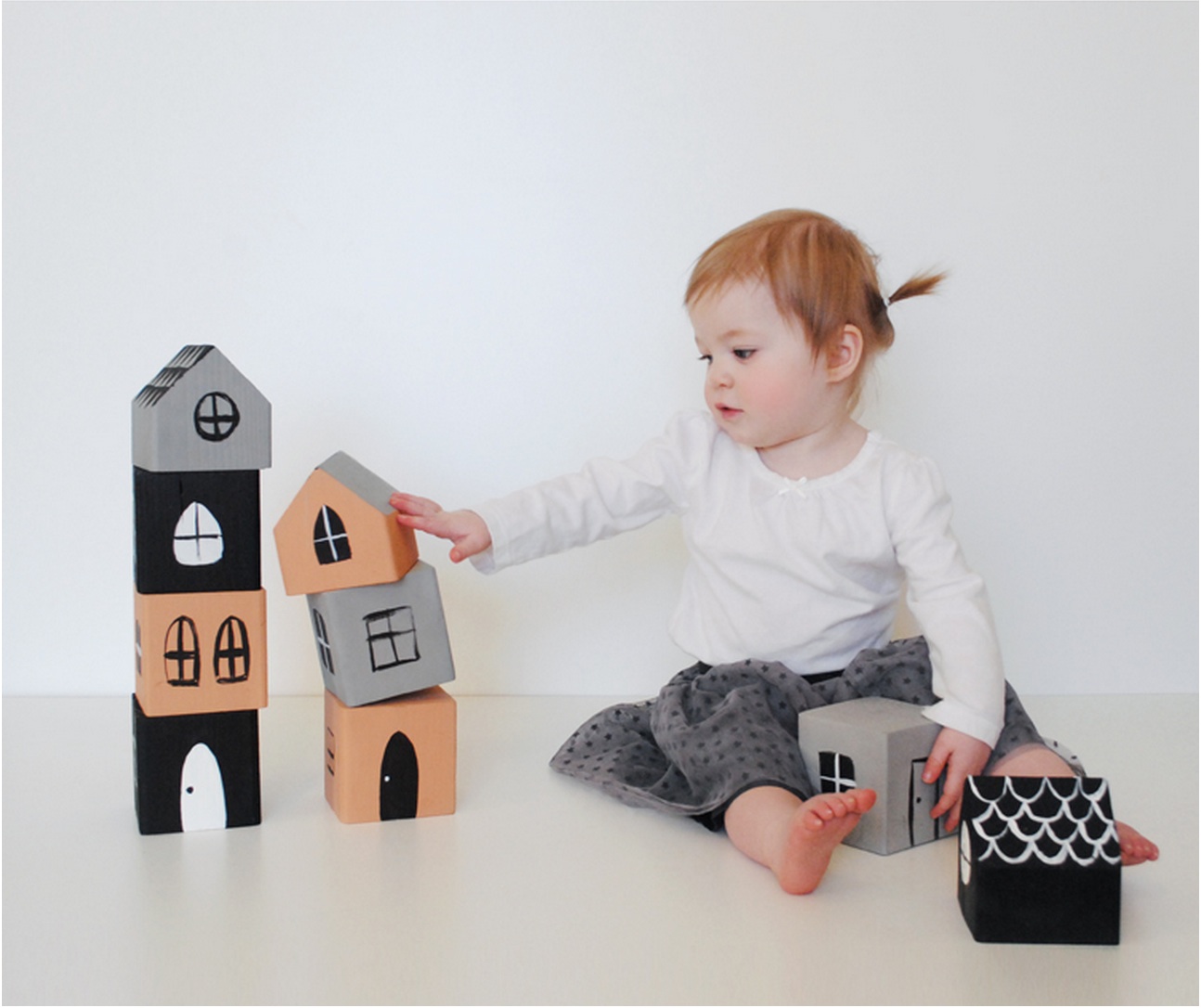
Fathers and Fairness: Teaching Equality and Justice
Every dad wants his kids to grow up in a world that’s fair and just. The “State of America’s Fathers” report calls attention to the vital role dads play in nurturing equality. This blog will explore how fathers can teach their children about fairness and justice through everyday actions and conversations, directly influencing the next generation’s understanding of these crucial values.
Stay with us for insights on shaping a brighter future for all our kids!
Key Takeaways
- Fathers have a crucial influence on teaching children about fairness and justice through everyday actions, such as respecting differences, nurturing creativity, and showing empathy.
- Caregiving fathers who share household responsibilities can break gender stereotypes and create more equitable homes, which supports social justice beyond the family structure.
- Applying social justice theories in education involves fathers sharing stories that foster empathy, leading by example in fair treatment of others, discussing current events critically with children, and advocating for inclusive practices at schools.
- Globally, men are becoming agents of change by participating in programs that promote equality and challenge traditional gender roles within families and communities.
- Literature like “The Alchemist” by Paulo Coelho and “To Kill a Mockingbird” by Harper Lee provides opportunities for fathers to discuss important themes of personal growth, empathy, equality,
The Role of Fathers in Promoting Equality and Justice
Fathers play a critical role in shaping a world grounded in fairness by modeling and instilling values of equality and justice in their children from an early age. Their influence extends beyond mere instruction to exemplify how respecting differences and practicing empathy contributes significantly to societal harmony and individual character development.
Acknowledging and Valuing Differences
Everybody has something unique to offer, and it’s crucial for dads to teach their kids to see the value in those differences. By understanding that each person brings their own story and strengths to the table, children learn to respect diversity.
Fathers who celebrate various cultures, abilities, and ideas help build more inclusive communities. They encourage their sons and daughters not just to tolerate but appreciate what makes others special.
Respecting everyone’s identity lays a strong foundation for social justice. Kids guided by such fathers grow up with a deep sense of fairness, recognizing that equality means giving everyone a chance to shine in their own way.
These children become adults who are ready to stand against racism and gender inequality because they were taught early on that every voice matters in shaping an equitable world. Fathers taking this active role forge paths toward true educational equity as they nurture young minds open to learning from every individual they encounter.
Nurturing Imagination
Fathers play a critical part in fostering their children’s creativity. They encourage kids to dream big and explore endless possibilities through storytelling, art, and imaginative play.
By promoting an environment where young minds are free to invent and question, dads help develop the critical thinking skills necessary for tackling complex social issues like equality and justice.
They model problem-solving behaviors that show children how everyone has the potential to create change in society. Encouraging daughters and sons alike to envision a world without gender stereotypes or socioeconomic barriers is essential for progressive education.
Playtime becomes a powerful tool when fathers engage with their children as equals, demonstrating that inventive solutions can come from anyone regardless of age or gender.
Teaching Empathy and Compassion
Empathy and compassion are essential values that fathers can nurture in their children. By demonstrating understanding and kindness, dads set a powerful example for young minds to follow.
They show their kids how to recognize others’ feelings and respond with care. Through everyday interactions, fathers teach by doing – sharing experiences, listening actively, and showing concern for friends, family members, and even strangers.
Encouraging children to think about how others feel fosters a sense of empathy. They learn that everyone has emotions that deserve respect. A father might discuss stories from his own life or situations on the news to help his child see different perspectives.
When a child witnesses their dad acting with compassion during difficult times or towards those in need, it reinforces the message that caring for others is both important and rewarding.
This guidance helps shape a future generation committed to social inclusion and equality for all community members.
Impact of Caregiving Fathers on Advancing Equality and Social Justice
Caregiving fathers are changing the game in the fight for gender equality. They take on roles that were traditionally assigned to mothers, showing that parenting duties shouldn’t be based only on gender.
This shift in dynamics promotes a more even playing field at home, making it possible for mothers to pursue their careers and personal goals without bearing an unequal share of household responsibilities.
As dads step up to change diapers, help with homework, and handle bedtime stories, they’re sending a strong message: both parents can provide care and emotional support.
Not only do caregiving fathers model behavior that defies outdated stereotypes, but they also foster environments where children grow up valuing fairness and inclusion. Kids who watch their dads cook meals or clean up learn that these tasks aren’t just “women’s work.” They begin to see all activities as simply human responsibilities regardless of whether someone is male or female.
Such experiences are crucial steps toward building a society where career opportunities and domestic duties are shared equitably between genders, thereby tackling systemic inequalities head-on.
Theories of Social Justice in Education
Theories of Social Justice in Education delve into the frameworks that guide equipping children with the principles of fairness and respect for all, laying a foundation for them to become advocates for change and equity in their communities.
Distributive Justice Theory
Distributive Justice Theory strives for a world where everyone gets their fair share of society’s resources, opportunities, and benefits. This concept takes aim at the inequalities that can hold people back from receiving a quality education.
It pushes for changes so that children from every background can have the same chance to learn and grow.
At its core, this theory supports fathers in being fully engaged with their kids’ schooling and development. Fathers’ involvement is seen as key to boosting children’s academic success and happiness.
Policies and educational programs must include fathers’ viewpoints to create an inclusive learning environment where both parents are empowered in their roles.
Recognition Theory
Moving beyond the allocation of resources, Recognition Theory delves into the heart of social identity and respect in educational settings. This approach demands that we acknowledge and honor the diverse identities and experiences fathers bring to the table.
It’s about making sure they are seen and appreciated within schools, not just as caregivers but as integral parts of their children’s learning communities.
Recognition Theory insists on weaving fathers’ unique perspectives into curriculums and teaching materials. Educational spaces must be transformed into hubs where fathers feel encouraged to get involved with their kids’ schooling.
The theory is a call to action for educators to dismantle systemic obstacles hindering fatherly participation. In this way, classrooms become places where true equality flourishes, fostering justice for every family member engaged in the education process.
Capability Approach
The Capability Approach puts individuals’ ability to pursue a life they value at the center stage. It argues that justice requires more than just equal access; it demands that everyone has the tools and freedom to develop their own abilities.
This view shifts the focus from mere distribution of resources to ensuring people actually have the opportunities they need to thrive.
Fathers play a crucial role here, as they can empower their children by fostering an environment where each family member grows according to their unique skills and desires. The approach challenges fathers to consider not only what resources are available but how these resources enable meaningful choices for themselves and their children.
Next, we explore practical strategies this theory suggests for application in educational settings.
Applying Social Justice Theories in the Classroom
Applying Social Justice Theories in the Classroom: Fathers have a pivotal opportunity to extend the values of equality and justice beyond home, influencing children’s learning environments by actively participating in educational settings that embrace diverse teaching methods grounded in social justice theories.
This hands-on approach fosters an inclusive classroom culture where every student’s potential can be realized without bias or barrier.
Practical Strategies for Fathers
Fathers play an essential role in shaping their children’s values, especially when it comes to justice and equality. They can take specific actions to create a positive impact on their children’s understanding of social fairness and inclusivity.
- Share Stories: Fathers can read books to children that highlight themes of empathy, diversity, and equality. Books like “The Alchemist,” “To Kill a Mockingbird,” and “Man’s Search for Meaning” inspire conversations about life’s bigger questions and everyone’s right to dream.
- Lead by Example: Display fairness in everyday situations. Treat all people with respect, regardless of their background or status, showing kids that everyone deserves equal treatment.
- Discuss Current Events: Talk about news stories or social issues at the dinner table. Encourage kids to think critically about justice in the world around them.
- Volunteer Together: Get involved in community service projects as a family. This teaches kids firsthand about giving back and helps develop a sense of responsibility toward others.
- Create an Inclusive Home: Make your home a welcoming place for people from diverse backgrounds. Invite friends from different cultures to share meals and holidays with your family.
- Open Dialogues: Have honest discussions with your kids regarding difficult topics such as racism, sexism, and inequality. Don’t shy away from tough questions they may have.
- Advocate at School: Work with teachers to ensure inclusive educational practices are in place. Support efforts that foster intercultural understanding within learning environments.
- Empower Kids: Teach children they have the power to make changes in their school and community by standing up for what is fair and just.
- Model Kindness: Consistently show kindness to demonstrate how treating people well can improve community cohesion.
- Practice Restorative Justice: If conflicts arise, use restorative approaches that aim for healing rather than punishment, highlighting the importance of empathy.
Challenges and Solutions in Implementation
Integrating social justice teachings into the classroom presents several challenges. Fathers and educators can work together to overcome these obstacles and promote equality.
- Identifying Biases: Teachers must first recognize their own biases to create an inclusive learning environment. Solutions involve professional development workshops on critical pedagogy and empathy training.
- Resistance from Community: Some communities may resist changes to traditional educational methods. Open forums and discussions can help address concerns and highlight the benefits of social justice in education.
- Limited Resources: Schools often lack resources needed for equality-focused initiatives. Fundraisers and grants for open educational resources (OER) can aid in securing necessary materials.
- Curriculum Constraints: Standardized testing and rigid curricula limit the inclusion of social justice topics. Advocating for more progressive educational policies can lead to curriculum revisions that embrace such principles.
- Engaging Fathers: Most efforts fail due to a lack of father involvement. Creating events targeted at fathers, like workshops about child development and empowerment, fosters greater participation.
- Assessing Impact: Measuring the success of these teachings is complex. Implement best practices for evaluation that capture improvements in student attitudes towards marginalized groups.
Global Examples: Men and Fathers as Agents of Change
Around the world, men and fathers are stepping up as pivotal figures in the movement towards greater equality and social justice, effectively transforming communities and setting powerful examples for future generations.
Their involvement showcases a universal commitment to creating fairer societies by directly challenging traditional gender roles and advocating for systemic change.
Turkey
In Turkey, AÇEV’s innovative parenting program is breaking new ground in father involvement. Fathers actively participate in child-rearing and educational activities through this initiative, which fosters stronger family bonds and community connections.
These proactive steps help mothers experience enhanced wellbeing while simultaneously reducing their stress levels.
The positive effects of the father engagement initiatives extend to children as well, promoting a more inclusive school environment for all. Such programs empower fathers to become agents of change within their families and communities, challenging traditional gender roles by sharing caregiving responsibilities equally.
This shift towards equality helps set the stage for Lebanon’s efforts in advancing social justice through similar interventions.
Lebanon
Lebanese fathers are stepping up as crucial players in the movement for social equality and justice. In a country where traditional roles have long defined gender expectations, these men are breaking molds by encouraging their children to treat everyone fairly regardless of background or belief.
They foster critical conversations at home about respecting differences, which helps nurture a more inclusive society.
These dads champion equal opportunities in education and the workplace, standing with both sons and daughters in questioning outdated norms. Through their actions, they inspire others to challenge societal barriers that hinder progress towards fairness.
This shift within families extends into broader community impacts, with Lebanese fathers actively participating in campaigns and initiatives aimed at dismantling oppression and discrimination.
Jordan
Moving from the progress seen in Lebanon, we turn our attention to Jordan where fathers are also challenging traditional roles and championing social justice. In a society that values strong family ties, these men are embracing opportunities to teach their children about fairness and equality.
They lead by example, empowering their sons and daughters to respect differences and stand against gender inequalities.
Jordanian dads are breaking down stereotypes and fostering environments where listening and understanding form the foundation of learning. Their involvement goes beyond the home as they advocate for policies like paid parental leave, aiming to strengthen the role of caregiving fathers in society.
This shift mirrors a larger movement towards sustainable change across communities striving for equal opportunity for all.
Rwanda
In Rwanda, fathers play a critical role in shaping a future of gender equality and justice. The country has put policies in place that actively involve men in the fight against gender-based violence and discrimination.
These initiatives are changing deep-seated societal attitudes by recognizing men’s responsibility and potential as allies for change.
Rwandan fathers have become global role models for their contributions to social fairness. Their engagement is breaking down barriers and empowering communities to face gender challenges together.
Significant strides have been made, with Rwanda’s commitment drawing international praise, establishing the nation as a leader in involving men as agents of positive transformation.
Uganda
Moving from Rwanda’s initiatives, Uganda is also making significant strides in involving men and fathers as key players in propelling equality and social justice. Organizations across the country are initiating discussions that encourage fathers to embrace their role as advocates for gender fairness.
Through these efforts, Ugandan communities are witnessing a shift toward more equitable practices.
In dedicating resources to educate and mobilize fathers, Ugandan programs emphasize the power of paternal influence in shaping societal norms. These men are becoming vocal supporters for change, challenging traditional views and demonstrating how involved fatherhood contributes to a healthier society.
By prioritizing this engagement, Uganda stands as a beacon for other nations looking to activate similar transformations within their cultures.
United States
In the United States, fathers face unique challenges when it comes to promoting equality and justice within their families. Despite being a high-income nation, the U.S. does not guarantee paid leave for new dads, making it harder for them to be present in the early stages of parenting.
This lack of support stands out in stark contrast with other advanced economies where parental leave is a given right. Fathers in America are expected to balance work and family without the safety net that time off can provide.
The incarceration rate also affects American fathers disproportionately. With over 2.7 million children having an incarcerated parent, many dads are removed from their role as a caregiver and teacher of societal values due to harsh penal policies that impact mainly low-income populations.
These realities contribute to widening social inequalities and complicate efforts by men trying to nurture empathy, compassion, and understanding among their children against a backdrop of systemic barriers.
The Role of Technology in Promoting Social Justice
Technology is a powerful ally in the fight for social justice within education. It opens doors to learning for students who might otherwise be left behind, addressing achievement gaps and offering equal chances for success.
By incorporating digital tools into classrooms, educators can create lessons that are more engaging and accessible to all learners, including those from marginalized communities.
Interactive software and online resources empower teachers to deliver personalized experiences tailored to each student’s needs. Social media platforms provide spaces where voices traditionally unheard can share their stories and perspectives, fostering empathy and understanding among peers.
Such technologies not only enhance academic achievement but also pave the way for future innovations in promoting fairness across society.
In conclusion, embracing the vital role of fathers can transform our approach to equality and justice. They become powerful educators in their children’s lives when they demonstrate fairness and compassion.
Through active involvement, dads across the globe pave the way for a more just society. Let’s encourage and support every father striving to teach these indispensable values. Their impact reaches far beyond their own families, shaping a brighter future for all.
FAQs
1. What does teaching equality and justice to fathers involve?
Teaching equality and justice to fathers involves helping them understand the importance of being a supportive role in child support, advocating for things like paid family leave, and embracing fairness in single-parent households.
2. Why is it important for children to learn about figures like Martin Luther King Jr.?
Learning about Dr. Martin Luther King Jr. empowers children with knowledge about civil rights and inspires them to dream big while standing up for fairness just as he did during his life.
3. How can society help fathers who are struggling financially?
Society can assist struggling fathers through supportive measures like earned income tax credits, payroll tax adjustments, disability benefits, and ensuring they have access to child welfare resources.
4. What are feminist scholars saying about fatherhood and responsibility?
Feminist scholars emphasize that true reproductive justice includes shared responsibilities between parents, such as custody of children and providing reproductive health services equally.
5. Can laws affect how we teach fairness to future generations?
Yes! Laws play a crucial role by setting examples of equality; policies like affirmative action or the Family and Medical Leave Act show young people how institutions work toward intergenerational fairness.
6. How can affirming actions empower single-parent families?
When communities adopt affirmative actions such as offering medical leave or reasonable accommodations for parental duties, they help ensure no child is left behind regardless if they come from single-parent families or not.




